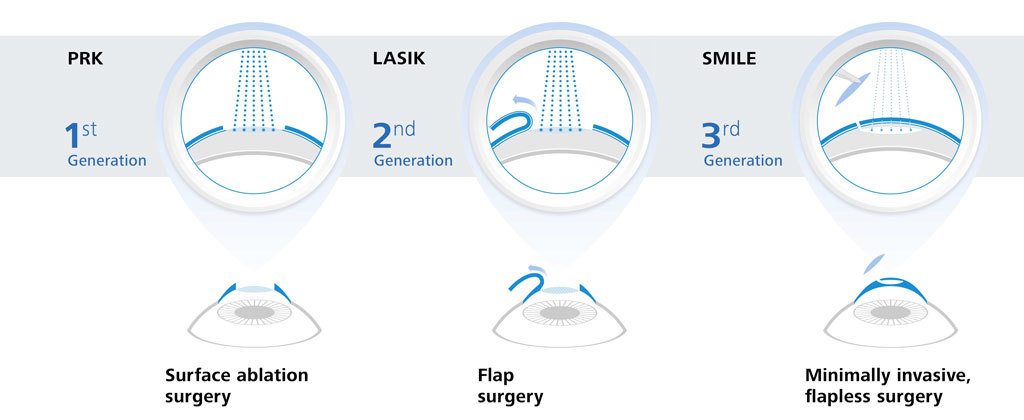Frequently Asked Questions About Lasik Eye Surgical Procedure

Article created by-Burt Rooney
Prior to LASIK, your eye specialist will certainly check your vision to make sure it is stable. He or she will certainly also check to see if you have any other eye issues that can influence your outcomes.
After the eye doctor has actually used numbing eye declines, she or he will create a paper-thin flap in your cornea tissue making use of a tool called a microkeratome or laser. The procedure is painless.
What Is LASIK?
LASIK is a type of refractive surgical procedure. It corrects vision issues triggered by refractive errors, which occur when the cornea or lens do not effectively flex light rays.
Most individuals that have LASIK attain good range vision without glasses or contacts. Nonetheless, they may need analysis glasses to see close. The outcomes of LASIK are permanent, although visual adverse effects are temporary.
Can I Have LASIK if I Have Astigmatism?
Blurred vision is frequently caused by astigmatism. LASIK can assist with this problem by making your cornea more balanced. The specialist will utilize a device called a microkeratome or laser to cut a thin flap in your cornea, after that fold it back. They will then use a laser to reshape the cornea so it can bend light much better.
The only thing that LASIK can not do is correct presbyopia (age-related farsightedness). This can just be performed with cataract surgery.
Can I Have LASIK if I Have Dry Eye?
A key part of the LASIK analysis is evaluating exactly how well your eyes create tears. Some people with dry eye are incapable to obtain LASIK because it can intensify the problem.
Dry eye is an usual side effect of LASIK because the procedure severs corneal nerves. Nevertheless, it normally boosts as the eye heals. You can use artificial tears as well as punctal plugs to manage your symptoms.
Can I Have LASIK if I Have a Cataract?
For the most part, yes. LASIK can enhance your vision after cataract surgery.
When you have a cataract, your lens is gloomy as well as your close-up vision is fuzzy. LASIK can aid with this, along with your distance vision.
Throughout LASIK, your surgeon will utilize a laser or a blade to create a slim flap on your cornea. Then the cosmetic surgeon will certainly fold the flap back and also use a laser to reshape your cornea.
Can I Have LASIK if I Have a Retinal Detachment?
Retinal detachment generally arises from a retinal tear. The medical professional will fix the tear with an in-office treatment called pneumatic retinopexy. After the eye is numbed, the doctor inserts an expandable gas bubble right into the eye to push the detached retina versus its support tissue.
LASIK does not correct presbyopia, which establishes as you grow older and also triggers blurred close-up vision. Nonetheless, https://zenwriting.net/clayton1brett/post-op-treatment-tips-for-a-smooth-recuperation-after-refractive-surgery can be integrated with mono-vision to reduce or eliminate the need for checking out glasses.
Can I Have LASIK if I Have a Hyperopia (Farsightedness) or Myopia (Nearsightedness)?
Many medical insurance business don't cover LASIK since it isn't taken into consideration medically essential. However, they might repay clients for lens implants if a cosmetic surgeon becomes part of their network.
Before you go through LASIK, your eye doctor will carry out a comprehensive eye exam. This will include checking your general eye wellness, pupil size as well as refractive mistake. She or he will also measure the thickness of your corneas.
Can I Have LASIK if I Have Presbyopia (Aging Eyes)?
LASIK does not attend to presbyopia (loss of close to vision related to age). Instead, https://www.benzinga.com/money/best-cheap-vision-insurance/ by improving the cornea.
After numbing drops and also covering the eye with a guard or spot, the surgeon produces the flap. Then https://postheaven.net/adrian92ernie/the-benefits-as-well-as-risks-of-refractive-surgical-treatment improves the cornea. You might hear a clicking noise as well as smell an uncommon aroma. This is normal and also does not create injury.
Can I Have LASIK if I Have Keratoconus (Rounded Cornea)?
In LASIK, your surgeon will utilize a femtosecond laser to cut a thin flap in the cornea. They will certainly after that fold it back and use a various laser to improve your cornea.
Your vision is based upon just how light enters your eye, bends through the lens and also focuses on the retina. Refractive mistakes keep light from concentrating correctly and also create blurry vision.
Can I Have LASIK if I Have Blepharitis (Swelling of the Eyelids)?
Most individuals choose LASIK because they desire flexibility from glasses or call lenses. It is essential to review your goals with your eye doctor prior to having the treatment.
LASIK is not uncomfortable. Eye declines are put to numb your eyes before the surgical treatment. The majority of people describe feeling a mild stress but no discomfort. Recuperation from LASIK is reasonably fast. Your vision will certainly be a little blurry and also light delicate right after surgical procedure however need to boost rapidly.
Can I Have LASIK if I Have a Corneal Thickness Concern?
LASIK corrects vision by improving the corneal tissue. To do this, the cornea should be thick sufficient for the surgeon to develop a flap.
If your corneas are too thin, you may be a candidate for laser vision correction procedures that do not require creating a flap, such as PRK or Epi-LASIK. These procedures have similar outcomes to LASIK yet operate in a different method.

